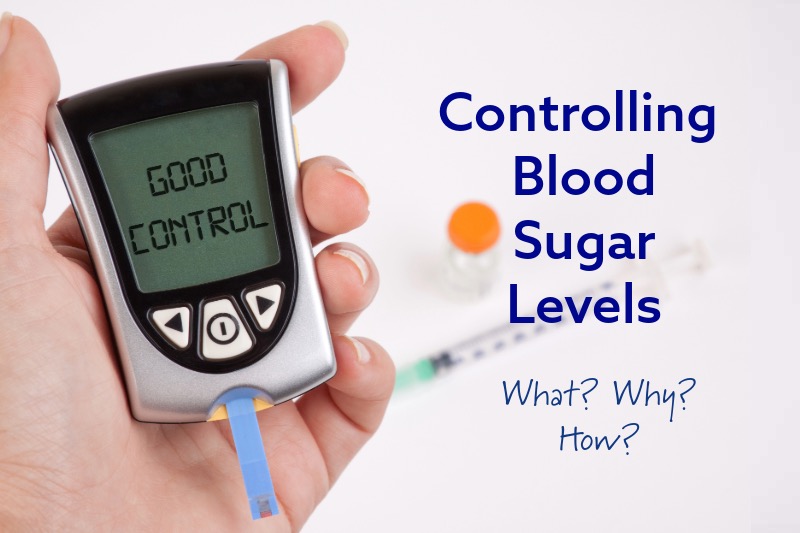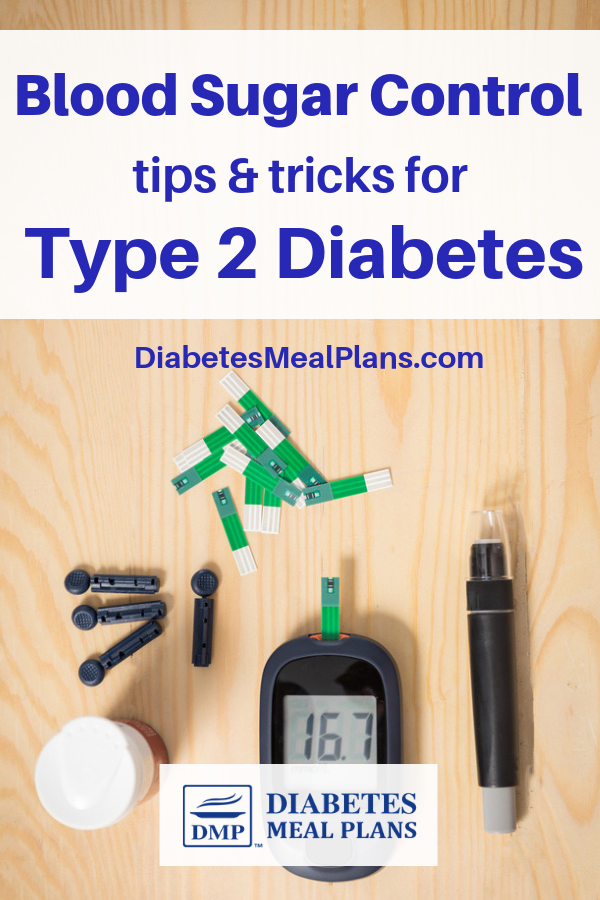Table of Contents[Hide][Show]
New to diabetes and not sure what all this talk about controlling blood sugar level actually means?!
I don’t blame you.
It can be hard enough getting your head around what normal blood sugar is and when you need to test, let alone controlling blood sugar level!
It can all seem overwhelming. So just remember to breathe, you’re not alone here 🙂

What Does It Mean To Control Blood Sugar Level?
What it means is that you want to get your blood glucose and a1c as close to normal (non-diabetic) as possible and maintain it at normal levels too.
Tight Control
When your diabetes is well controlled you will be able to keep your blood glucose within normal range all the time, or at least most of the time.
For newly diagnosed diabetics or if you’re not eating a good diet and exercising, then you’ll probably find this difficult to do.
It takes a bit of work to gain tight control of blood sugar levels, but it is worth the effort because you want to avoid those nasty complications (you know the ones I’m talking about).
Uncontrolled
If you’re still drinking soda and eating donuts, or just relying on medications without doing anything else, then chances are your diabetes is uncontrolled or poorly controlled. What generally happens here is your blood sugar levels are all over the place, or they are constantly high.
For example: You might find that your blood sugar level post meal is 140 one day and the next it is 180 or 200 (in some people it’s even higher). This is not under control. If your blood sugar level is going above 140 after meals then it is not under control.
You want to aim to have levels under 140 all the time because anything above this is where damage is done and risk of complications skyrockets. We’ll get to normal levels and testing in just a sec 🙂
How To Gain Better Control?
Diet
- Lower your carb intake – this is the fastest, easiest way to lower blood glucose and take strain off the pancreas – see this post on how many carbs to eat per day
- Choose the right carbs – see this post for a guide on healthy carbs
- Eat a whole foods anti-inflammatory diet – as outlined in this diabetic food list, it really is the best, healthiest way to eat long term and get the best results
Exercise
- Aim for 30 minutes of exercise per day
- Take a short walk after meals or stand and do 10-20 squat exercises – exercise after meals is smart exercise to help clear glucose from the blood stream
Test, Test, Test
You have to get into the habit of testing your blood glucose often.
Remember, the normal fasting blood glucose level is between 70 and 110 mg/dL or 4 and 6.1 mmol/l.
Here are the charts to help.
mg/dl chart

mmol/l chart

You can grab our free downloadable blood sugar chart over here.

How Often To Test?
It’s recommended you test at least 4 times per day. But it’s even better if you test more, at least until you get good control of blood sugar levels.
If your blood sugar is currently uncontrolled or you want to gain better control here is a strategy to get you moving in the right direction.
1. Write down everything you eat in a food diary or log it in an app like MyFitnessPal
2. Test upon waking, then test 1 hour after meals, and 2 hours after meals as well. Write down all your readings and make a note of when your highest reading comes and how long it takes for you to return to normal. This will differ for everyone so you want to know when your high level comes.
3. Take a note if you have any extra high readings. Do these coincide with certain foods such as a meal with bread, pasta, or other dense carbohydrates? What you will begin to notice is certain foods that are making your blood glucose levels higher. So this practice is really all about bringing more awareness into your routine so you can discover how you react. This is important because some people are more carbohydrate sensitive than others.
4. Follow the diet strategies mentioned above, in particular focusing on reducing carbs and choosing the right carbs. Keep testing and see what happens. You will notice that your blood sugar levels start coming under better control and this is what this process will help you do.
Yes, it is a bit of work and quite a bit of monitoring but if you want to avoid complications and live a healthy life, it really is worth the effort.
Wishing you the best in health 🙂

Hola, my name is Miguel Angel Ruiz and I’m . I recently had tests done on my bood sugar a1c level and my blood pressure. My blood pressue was 157/100 and my blood sugar was at 5.9 but it has dropped 1 point. My Cholesterol level is at 120 and my MD tells me if I do not lower it , than I can have a stroke or a heart attck. I’m going to follow your professional advice.
Can You Please Send Me The; Type 2 Diabetes Blood Sugar Levels Chart Book. I’m 63 Years Old, and I Live by myself.
Sorry Elias, we don’t send out hard copies. You can find similar info here.